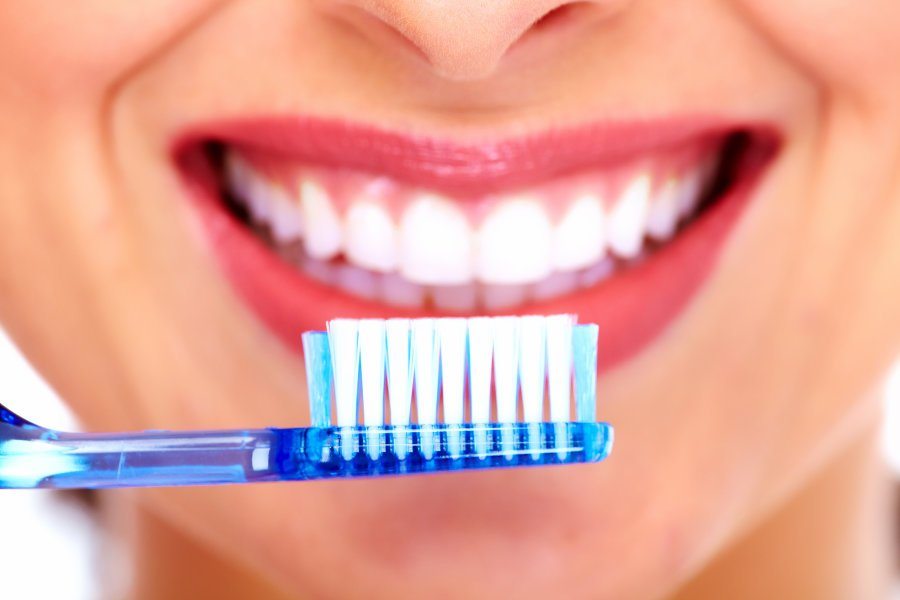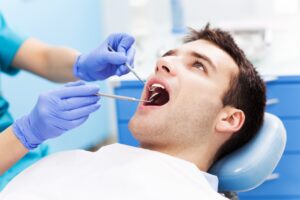
Keep Your Healthy Smile for Life: Benefits of Annual Dental Cleanings
Keep Your Healthy Smile for Life: Benefits of Annual Dental Cleanings A healthy smile is the key to a happy life! Maintaining good oral hygiene

Are you one of the many people who have been told that your wisdom teeth need to be extracted? This common procedure can cause anxiety and confusion for many patients. While some dental professionals recommend removal as a preventative measure, others argue that it is unnecessary in certain cases. So, what’s the right answer? In this blog post, we’ll explore the pros and cons of wisdom teeth extraction so you can make an informed decision about your oral health. Get ready to weigh up all sides of this contentious issue!
Wisdom teeth, also known as third molars, are the last teeth to erupt in the mouth. They usually appear in the late teens or early twenties. Wisdom teeth can cause problems if they are misaligned or if there is not enough room in the mouth for them to erupt. Impacted wisdom teeth can cause pain, infection, and damage to adjacent teeth. In some cases, wisdom teeth extraction may be recommended to prevent these problems.
There are pros and cons to wisdom teeth extraction. The decision to extract wisdom teeth should be made by a dentist or oral surgeon after a thorough examination of the mouth.
There are a few symptoms that may indicate you have an impacted wisdom tooth, including:
-Persistent pain in your gums
-Swelling in your gums
-Bad breath
-Difficulty opening your mouth
-A bad taste in your mouth
If you experience any of these symptoms, it’s important to see a dentist right away. They will be able to determine if you have an impacted wisdom tooth and recommend the best course of treatment.
There are a few signs that indicate it might be time to consider wisdom teeth extraction, even if your wisdom teeth haven’t caused any pain or problems yet. If you have crowded teeth, your wisdom teeth may be pushing on your other teeth and causing them to become crooked. If your wisdom teeth are coming in at an angle, they may also damage the roots of nearby teeth. You may also be at risk for infection if your wisdom teeth aren’t coming in properly or if they’re only partially erupted. Wisdom teeth that are impacted (stuck under the gum) are especially susceptible to infection because food and bacteria can get trapped around the tooth.
Wisdom teeth extraction is a common procedure that is usually performed by an oral surgeon. The surgery is typically done under general anesthesia, which means you will be asleep during the procedure.
The first step of the surgery is to make an incision in the gums. The oral surgeon will then remove any bone that is blocking access to the wisdom teeth. Once the wisdom teeth are exposed, they will be removed.
After the wisdom teeth have been removed, the incisions in your gums will be closed with stitches. You will then be taken to a recovery room where you will be monitored for any complications.
Most people recover from wisdom teeth extraction without any problems. However, it is not uncommon to experience some swelling and discomfort after the surgery. Your oral surgeon will prescribe pain medication to help you manage any discomfort you may experience.





Keep Your Healthy Smile for Life: Benefits of Annual Dental Cleanings A healthy smile is the key to a happy life! Maintaining good oral hygiene

Let’s Discuss Wisdom Teeth Extraction Are you one of the many people who have been told that your wisdom teeth need to be extracted? This

Orthodontic Treatments for Adults: Weighing the Pros and Cons
Are you dreaming of a straighter, more confident smile? You’re not alone! While orthodontic treatments are often associated with adolescence, an increasing number of adults are seeking the benefits of a perfectly aligned set of teeth. If you’ve been considering orthodontic treatment but find yourself wondering about the pros and cons, look no further. In this blog post, we’ll delve into the world of adult orthodontics, exploring everything from traditional braces to innovative invisible aligners.

The Benefits of Dental Crowns and Bridges: What You Need to Know When it comes to maintaining a healthy and beautiful smile, dental crowns and

Understanding the Procedure of a Non-Surgical Root Canal: Everything You Need to Know If you’re experiencing a toothache or sensitivity, your dentist may recommend a

What to Expect During A Checkup When you come in for a dental checkup, the first thing we will do is take some x-rays. This

Why Regular Dental Checkups Are Crucial: Dr. Vagenas’ Guide To Oral Hygiene Care Even if you take great care of your teeth, it is important

Dental Implants – The Natural-looking, Durable And Long-Term Solution For Missing Teeth: Missing teeth are a common issue, with many remedies available. Dental implants are

Emergency Dentist in Brockton – 5 Reasons Why You Need To Call Now If you are looking for a reliable emergency dentist to call in

Best Dental Clear Aligners in Brockton MA Your smile is part of putting your best foot forward. When you meet someone, it is one of

Missing Tooth Replacement Options From Vagenas Dental Many adults are missing one or more teeth. Dr. Bill Vagenas, a longtime Brockton dentist, offers a list

A Nice Smile Is On The List at Vagenas Dental Santa can’t really bring a new smile but Vagenas Dental actually can. We offer restorative

Dr. Vagenas has been practicing his unique brand of dental care since 1995, and began his private practice in the early 2000s. He offers a wide variety of dental techniques, and specializes in sedation dentistry, dental implants and CEREC Restorations.

In observance of our Independence Day Holiday, our Dental Center will be closed Starting on July 1st and we will re-open on July 8th at our normal hours.

In observance of our Independence Day Holiday, our Dental Center will be closed from June 30th through July 10th. We will re-open on July 11th at our normal hours.